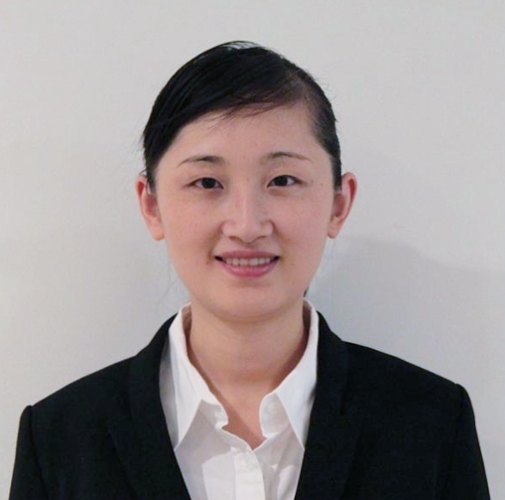Min Ju, Ph.D.
Dr. Min Ju is an Associate Professor of Marketing at Ed G. Smith College of Business, University of Missouri–St. Louis. She received her B.A. degree in Management Science from Fudan University and PhD degree in Marketing/International Business from Saint Louis University. Her research areas include inter-firm relationships, marketing channel management, and firm capabilities. She has published in Journal of Operations Management, Journal of International Marketing, Journal of World Business, International Marketing Review, Asia Pacific Journal of Management, China and World Economy, among others. She teaches Basic Marketing, International Marketing, and Management of Promotion for undergraduates and MBA students. She is a fellow of the 45th AMA-Sheth Foundation Doctoral Consortium. She has won the Best Paper Award in the global marketing track at AMA summer conference and the Young Scholar Best Paper Award at Consortium for International Marketing Research. In 2016, she was chosen to receive the Douglas E. Durand Award for Research Excellence based on three years’ productivity at the Ed G. Smith College of Business, University of Missouri–St. Louis.
Education
Ph.D. (Marketing & International Business), Saint Louis University
Courses
Areas: Marketing and Marketing Strategy
Courses:
- MBA
- MKTG 5700 Marketing Communications
- Undergraduate
- MKTG 3700 Basic Marketing
- MKTG 3720 Management of Promotion
Research
Ju, Min (2022), “Organizational Ambidexterity and Its Performance Implication of Foreign Ventures in an Emerging Market”, Journal of Global Marketing, forthcoming.
Ju, Min and Gerald Yong Gao (2022), “Performance Implication of Exploration and Exploitation in Foreign Markets: The Role of Marketing Capability and Operation Flexibility”, International Marketing Review, forthcoming.
Ju, Min, Janet Y. Murray, Gerald Yong Gao, and Masaaki Kotabe (2019) “Concurrent Sourcing Strategy of Multinational Firms in China: Drivers and Performance Implications”, Journal of World Business, 54 (6).
Ju, Min, Jason Jin Lu, and Kevin Zheng Zhou (2018), “How can International Ventures Utilize Marketing Capability in Emerging Markets? Its Contingent Effect on New Product Development”, Journal of International Marketing, 26 (4), 1-17.
Ju, Min and Gerald Yong Gao (2017), “Relational Governance and Control Mechanisms of Export Ventures: An Examination across Relationship Length”, Journal of International Marketing, 25 (2), 72-87.
Dong, Maggie Chuoyan, Min Ju, and Yulin Fang (2016), “Role Hazard between Supply Chain Partners in an Institutionally Fragmented Market”, Journal of Operations Management, 46, 5-18.
Yang, Dorothy Liu, Min Ju, and Gerald Yong Gao (2015), “Export Relational Governance and Control Mechanisms: Substitutable and Complementary Effects”, International Marketing Review, 32 (6), 627-645.
Ju, Min, Hongxin Zhao, and Tiedong Wang (2014), “The Boundary Conditions of Export Relational Governance: A ‘Strategy Tripod’ Perspective”, Journal of International Marketing, 22 (2), 89-106.
Ju, Min, Kevin Zheng Zhou, Gerald Yong Gao, and Jiangyong Lu (2013), “Technological Capability Growth and Performance Outcome: Foreign Versus Local Firms in China”, Journal of International Marketing, 21 (2), 1-16.
Ju, Min, Hung-Gay Fung, and Haim Mano (2013), “Firm Capabilities and Performance: An Institutional Perspective on Foreign and Local Firms in China”, The Chinese Economy, 46 (5): 86-104.
Murray, Janet Y, Min Ju, and Gerald Yong Gao (2012), “Foreign Market Entry Timing Revisited: Trade-Off between Market Share Performance and Firm Survival”, Journal of International Marketing, 20 (3), 50-64.
Ju, Min, Janet Y. Murray, Masaaki Kotabe, and Gerald Yong Gao (2011), “Reducing Distributor Opportunism: Effects of Monitoring Mechanisms, Norm-based Information Exchange, and Market Orientation”, Journal of World Business, 46 (4), 487-496.
Ju, Min and Hongxin Zhao (2009), “Behind Organizational Slack and Firm Performance in China: The Moderating Roles of Ownership and Competitive Intensity”, Asia Pacific Journal of Management, 26 (4), 701-717.
Ju, Min (2007), “Deferred Executive Compensation Policies in Chinese State-Owned Enterprises”, China & World Economy, 15 (4), 102-117.

Contact Info
View Linkedin Profile
View CV